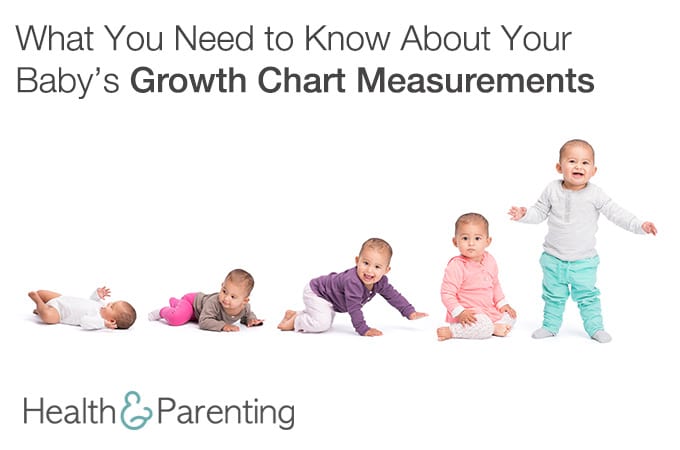Get any group of new parents together, and the subject of growth charts will inevitably come up.
“My little guy is 95th percentile for height,” one new mommy might brag. “Tall just like his daddy!”
“Mine is 90th percentile for both height and weight,” a new daddy might throw in. “Built like a football player, that one!”
In the corner, you might notice another new parent looking sheepish, “Mine is only 10th percentile,” they admit. “Should I be worried?”
The truth is, no, probably not.
The first thing to understand is what those percentiles mean. Basically, if a child is in the 50th percentile, that means that if you were to compare him or her to 100 other children of the same race and gender, 50 would be larger and 50 would be smaller. That 50th percentile child would fit right in the middle.
In most cases, those growth chart measurements aren’t meant to be compared with other babies. While, yes, they do reflect back on the averages for children your child’s age; all pediatricians know that children grow at a different rate, and that there is a very large margin for what constitutes as “normal.”
The things your pediatrician is looking for when taking those measurements include whether or not your baby seems to be growing at a consistent rate, (so, has he or she always been in the 10th percentile, or was there a recent drop over 20 percentage points or more in growth?) and whether or not your baby’s measurements seem to be proportional (that means height, weight, and head circumference measurements that are all around the same percentile).
As long as your baby seems to be growing consistently and proportionally, he or she is probably healthy and right on track!
The one exception to that is if your baby seems to be suddenly measuring under the 5th percentile. If this has been the case with your little one, your pediatrician will probably want to continue monitoring the situation and may request more follow up appointments.
Conversely, if your baby’s weight seems to consistently outmatch his or her height on the growth charts, your pediatrician may want to discuss what your little one is eating and how to ensure you are providing appropriate portion sizes.
For most parents, though, the growth chart numbers will be given simply because your pediatrician knows you find them interesting. Rarely do they indicate any reason for true concern, and when they do, your pediatrician will be sure to guide you in what to do next.
Written by Leah Campbell, infertility advocate, adoptive mama, writer and editor. Find me @sifinalaska on Twitter.
This information is not intended to replace the advice of a trained medical doctor. Health & Parenting Ltd disclaims any liability for the decisions you make based on this information, which is provided to you on a general informational basis only and not as a substitute for personalized medical advice. All contents copyright Health & Parenting Ltd 2016. All rights reserved.










